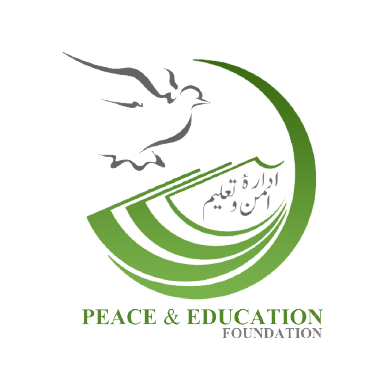On February 2, 2014, Awami Mohabbat (Public Devotion) published a full-page story of Hafiz Anas Zaheer, a religious scholar from Gujranwala and PEF graduate who was awarded with a shield in recognition of his noble services in the field of interfaith peace building. Regarded as an epitome of religious leadership today, PEF invites him to different forums to speak about his work and his experience in the field today. While many local and national journals have awarded him in recognition of his tremendous services in the area of peace building, health and education, Zaheer reveals that he was not always a peace-builder, but rather an individual born into harboring extremist religious beliefs.
Prior to attending the workshop, he was an active voice against non-Muslims and minorities—to the extent that he even demanded their removal all together from Pakistani society. However, after attending the PEF Imam & Interfaith leadership workshop for religious leaders, he soon realized that his biases developed from the general population’s lack of acceptance for non-Muslims and hence, their marginalization in society.
Today, Zaheer is an interfaith dialogue practitioner, receiving a high level of praise and respect from both Muslims and non-Muslims alike. Since graduating from the workshop three years ago, he has established a local network of peace builders and members from diverse socio-religious backgrounds. He has also initiated several peace-building programs in his areas including seminars, workshops and rallies demanding equal rights for non-Muslim Pakistanis. Besides working towards interfaith peace building, his main priority lies in healthcare and education for the Christian community in his city. He has established a dispensary in Gujranwala, which provides free medicine to its needy and low-income residents. With the help of local charities, he has also managed to establish the Mohammadia Model School, which provides education and training facilities to 250 children from underprivileged, low-income families of Muslim and non-Muslim backgrounds.
Today, he continues to acknowledge PEF for helping him overcome his extremist views and equipping him with the tools for effective peace building work.
“PEF has instilled in me the compassion, love and empathy for my fellow human beings who hold different beliefs, yet share the same fundamental virtues of humanity”
In an effort to continue driving social change in Gujranwala, he hopes to complete the following initiatives in the near future.
- Establishing vocational center in Gujranwala to generate employment opportunities for skilled women.
- Setting up health dispensaries in different areas of the city to provide medicine to poor and needy people of the area.
- Mobilization of local community for peace building to promote mutual peaceful coexistence.
- Creating peace-building programs to engage youth (male and female) in Gujranwala.

